|
I wasn't supposed to travel in 2018. After spending 7 weeks traveling around the world in 2017, I needed to stay at home and focus on my business. So what was I doing 5,000 miles from home? It turns out, I can be easily persuaded if the right opportunity comes along. A bit of background - a friend from Rotary, KC, went to Sierra Leone 3 1/2 years ago, at the end of the Ebola outbreak. She went with a Georgia-based non-profit that started a school in Wellington, Sierra Leone, over 25 years ago. This program was a great fit for her talents - providing education support to children with learning disabilities. It was her first trip to Africa, and it's safe to say that she fell in love. With the country, with the people, and with their hope for the future of the country. She decided to start a non-profit working to boost education for the children of Sierra Leone. Unlike many others who make such a commitment, she followed through and Education Cures was born. Over the next few years, I followed KC's adventures as she set up the program and I could see the joy that this work brought to her. I decided that if I ever had the chance, I would join her on one of these trips. Perhaps in 2020... In mid-February, KC mentioned that she was taking a group to Sierra Leone over the Memorial Day holiday. It seemed implausible, but I mentioned that if my tax bill was not as bad as I anticipated, I might consider the trip. Then I forgot about it. KC did not. The next week, she mentioned to me that I could save money on the trip if I were to do a home-stay with a fellow Rotarian in Sierra Leone. And this Rotarian happens to be the husband of a friend, and someone who I know and admire. It was harder to come up with excuses. The last hurdle would be the cost of the plane ticket. But I have lots and lots of Delta Skymiles. Isn't this what they are for? By the end of March, I was committed and starting to get excited about the trip. This would be my sixth trip to Africa, but I knew very little about Sierra Leone other than that the country had recently emerged from the Ebola outbreak. Friends were skeptical about the idea of traveling to this country, but I could see how KC's face lights up every time she talks about this place. So I began to do the research on what I needed to do to prepare for the trip (Yellow Fever vaccine - check!) and planned my itinerary. As the departure date approached, I learned one of the most important aspects of traveling with Education Cures - you only get to take one suitcase with your things. Your other bag will be used for carrying the school supplies and clothes that are delivered to the program. To help with filling these suitcases, KC sets up an Amazon wish list with the items that she needs at the school. My very generous friends helped to whittle the list. The trip began uneventfully. There were 10 people in our group, with five of us traveling to Paris a day early to do a bit of sightseeing. Sadly, my Paris visit was mostly rained out so there was no real chance to walk along the Seine. We met up with three other Atlanta-based travelers the next day and headed to the plane. Although the screen showed a slight delay, we were boarded shortly and ready for our trip. And then the wait began. Our baggage handlers decided to join the French national train workers in a strike (not sure if those for the ENTIRE airport participated). Right there on the concourse... they refused to load our bags. We could look out the plane window and see our luggage, but no one was making any effort to get those bags on the plane. So we waited - for nearly 3 hours - before the bags were finally on the plane. I was hoping that this would be the only problem that we would have on the trip. We arrived into Freetown quite late. All the various bags were assembled by the porters (only two lost on the trip! Disappointing, but not bad, considering the chaos), and we made our way to the ferry. It's odd to think about the fact that we were actually taking a ferry across a portion of the Atlantic Ocean. Late Saturday night, we made it to our lodging - the bulk of the group in a quaint hotel and me nearby at a generous Rotarian's house. Sunday was going to be a busy day. KC had arranged cars and drivers for our stay. Having made six previous trips to Freetown, she understood the importance of having well-maintained and rugged vehicles. Previous trips had involved many flat tires and broken down cars, which hampered the work that the group was doing. A really nice feature of these cars was air conditioning! It is very humid in Freetown. I met up with the group at their hotel, and we all headed out to church. I knew that this was going to be very different than my traditional Catholic Mass and I was really looking forward to it. We arrived in time to join in some dancing before the service began. I was already soaked with sweat by the time we were seated. The service was lovely and lengthy. There was lots of singing and dancing, recognition of special guests (which included us!), and sermons. Many of the locals speak Krio, a language that sounds similar to English, but really is not. Most of the prayers were said in English, and then translated to Krio, which added to the length of the service. About two hours into the program, a lady brought out sandwiches for the foreigners. It was very thoughtful, but I don't think any of us were craving white bread with mayonnaise and Spam. I gave my sandwich to the little girl sitting next to me. She seemed to like it, but thought it was very messy. I offered her some toilet paper to use as a napkin (I never travel without it!) and she seemed fascinated with the fact that my toilet paper could be separated into squares. This reminded me again how travel exposes you to so many different perspectives... After three hours, the service ended and we all made our way outside to cool off. I couldn't wait to eat! KC had picked a restaurant for our post-church meal. She had warned us that you really should not order off the menu, but to ask what the restaurant actually has. It was a good lesson for our first day. We all ate, and I returned to my house and fell fast asleep. Monday was our first day at the school. I was excited to see the place and figure out what I would actually be doing. This would answer the question that I had been asked since I announced that I was taking this trip - as a non-educator, what would I actually be doing? The great thing about a project like this is that if you keep your eyes open, you can quickly figure out something that needs to get done. KC was great with allowing us to explore the school and take ownership of a task. She did ask that we help here with "Brain Jogging", which is a cool set of tools designed to help young children learn to read. Our job was to hold their little heads so that they would move their eyes across the screen, not their heads. This was one project that we did every day. As SBP, a fellow Atlanta Rotarian, and I began to explore the compound, we quickly realized that there were a lot of projects to tackle so we needed to focus on one. The library was an easy place to start. The SLIMS library was full of books, but nothing about them was approachable. The front section was full of textbooks, randomly shoved onto the shelves. As you moved further back into the library, you would start to sneeze and cough because of all of the dust. I believe that having a library is such an important part of the school, but there had to be a better was to present the books! SBP and I quickly determined that many of the items on the bookshelf were not useful. Someone had sent nearly every National Geographic since 1932 (seriously!) - these were still bound with string, in piles on the bookshelf. There were 32 copies of a fashion and merchandising textbook (I think 1 copy would be fine). There was a book on beating Minecraft (these children do not have video games!). There was book on re-building a 1987 transmission. You get the idea - lots of filler, but the good stuff (picture books and stories) were stuffed in the back. We started with a purge - in order for children to use these books they would have to be able to find the ones of interest. And those that would never be reviewed could be sent to other places, or destroyed. We wanted to present a clean library that invited discovery. It was interesting to see how people responded to our projects. Books that had not been touched for years (as the dust could attest!) became desirable. We were happy to give books to anyone who wanted them, and we found that accounting text books were in high demand. One unanticipated result of cleaning out the library is that we were able to provide more space for computers. Many generous patrons had provided us with new laptops to take along on this trip to give to the school. Now that there was space, these laptops could be laid out for regular use, and the educational software that we had brought along could be used regularly. All of the computer donations meant that we could run more children through Brain Jogging. You could see the advancement in the children every time they put on the headset. The children were starting to understand the basics of reading. Many of the children also need to learn to speak up and so during Brain Jogging, they wear a device that looks like a headset. But it really designed so that the child can hear him/herself speak the letters or the words. Brain Jogging takes place in two main steps: the first is letter recognition. Two or three letters are flashed on the screen. The child is then asked which letters s/he sees and asked to state the letters loudly. It is important that the adult supervising the child not correct the child if the letters spoken are incorrect - educators reading the reports can see which letters are incorrect and how the letters are read to help determine if a child has a learning disability. The second step involves having an adult hold the child's head in place while the child looks at a computer screen. Words or phrases are then flashed on the edges of the screens. Each child is then asked to say the letter or letters that s/he sees on the far left and the far right side of the screen. The key is that the child needs to move his/her eyes, not the whole head. Success with this type of program requires repetition. KC worked with the teachers to help them understand the importance of the exercise and the need to incorporate this into the regular curriculum. Since SBP and I were largely on our own to identify the projects that we could address, we really wanted to see the classrooms. This was quite eye-opening. We were visiting during exam time for the older students. SBP and I walked through the upper school to see what was taking place. In one classroom, we walked in while a teacher was switching all the children in a particular row! It was really hard to watch. The switch came down hard across the backs of children's heads and their arms. I had to walk out of the classroom. The teacher realized that what she was doing was making us uncomfortable so she stopped. But the image was ingrained in my brain. I do remember in my early primary years that I had one teacher who hit us with a ruler if we were not paying attention in class, but this kind of discipline is now largely frowned upon in the US. SBP and I went back to the office and told KC what we had seen. She too was unhappy that this was taking place at SLIMS. Fortunately, she is in a position to do something about this in the lower school, so she implemented a policy that switching was not allowed with her students. Period. It was interesting to hear teacher feedback about the new policy. The consensus is that Sierra Leone children need switching in order to discipline them. They are taught this in the universities and it will take a change of attitude for this to catch on. But KC made a great observation - any teacher who cannot maintain control of a classroom without switching has no business being responsible for children. A highlight of the trip was being able to visit two different Rotary clubs in Sierra Leone. We went to one evening meeting which was really a Zumba class! KC, SBP and I had planned to merely watch the class, but we got caught up in the fun! This particular Rotary has Zumba as one of their meetings each month, which is a great way to promote "being active" with your fellow Rotarians. I am not sure that this program would go over well in the Buckhead Rotary. The second Rotary meeting involved quite an adventure just getting to the meeting. The facility was no more than 5 miles away, so allowing one hour for travel would have seemed like MORE than enough time! But we were wrong... we arrived nearly a half an hour late and missed most of the social part of the meeting. The members were more than gracious and did not charge us the typical late fee (designed to raise money for local Rotary projects). The last big project that SBP and I undertook was cleaning out the bookcase in the kindergarten classroom. It was a mess! SBP and I took EVERYTHING out and sorted the items by type. The biggest challenge was taking two bins of puzzle pieces and deciding which puzzles to keep! The best way to handle this project was to make this a joint operation with the teachers. We took all of the puzzle templates and laid them out across tables (about 44 in all). Then we dumped all the puzzle pieces into piles where we then proceeded to try to rebuild the puzzles. Any puzzles with missing pieces were then "given" to children to take home to their families. KC wanted the teachers to understand that we need to show the children that we do not think that they deserve junk. They deserve only complete puzzles. It really sends a powerful message. A summary of this trip would not be complete without mentioning some of the children who touched our hearts. KC fell in love with Mohamed on her first visit. At that time, he had a cataract on one eye so he was not attending school. KC found him a doctor to remove his cataract and then gave him the encouragement he needed to start learning. He is now one of the children in SLIMS who shows how much can be accomplished in the right learning environment. And he makes everyone around him feel loved. I will admit to finding my own child to love. His name is Ibrahim. I saw him one day while I was wandering around SLIMS and noticed him because he has the biggest smile! We started to talk and I asked him if he liked books. He said that he did so I took him in to the newly organized library. He read a few books to me and then I encouraged him to bring one home with him. The staff in the library actually discouraged me from doing so as they said that I would never see the book again. So what if I didn't? I explained that if he kept the book in his home, he could re-read it again and again. The books in the library were there to be read - not put away to take up space! On our last day in Sierra Leone, we had to stay close to town. The new president of Sierra Leone had decided that all the roads in the country would be closed until noon so that they could be cleaned. This seemed like a crazy idea so I was intrigued to see how this would work.
The road closures had an interesting effect on all the people. They used this as an excuse to clean out their houses. As we walked around, we saw whole families sweeping and removing junk. Not sure where all of this was going to end up, but it was fascinating to witness. We decided to walk over to a nearby orphanage to meet the staff and the children. Sierra Leone is an interesting country as they still allow international adoptions - and these adoptions are encouraged! The country survived a civil war and an Ebola outbreak, so there are many children who need families. In SLIMS, I witnessed how the entire community helps to "raise" the children. It really does take a village. Back to the orphanage - I have visited and worked in many orphanages around the world. They all tend to have the same smell and atmosphere. But not this one. It was incredibly clean and all of the children appeared to be helping each other. The older children were helping with the little children, and all of them were helping with the children who have disabilities. It was a wonderful last look at the people of Sierra Leone. To my friend KC, I am very grateful that you allowed me to join you on this trip. You are doing great work here and I look forward to visiting again.
0 Comments
|
Archives
September 2019
Categories |
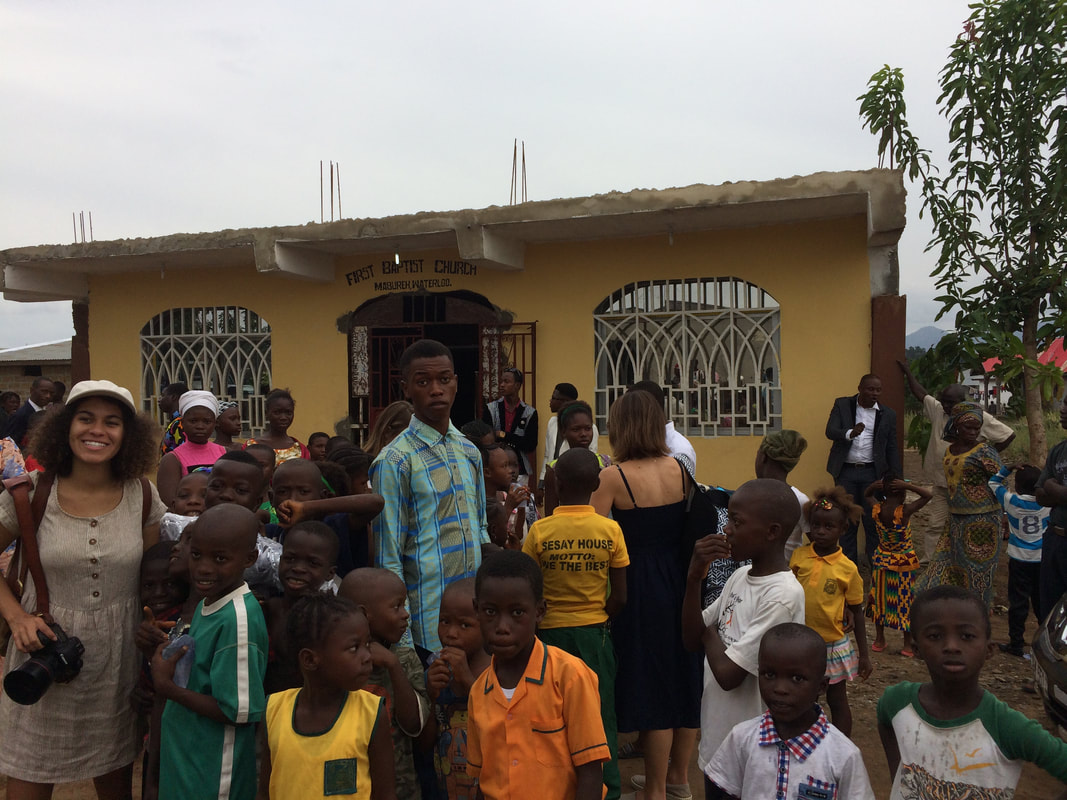
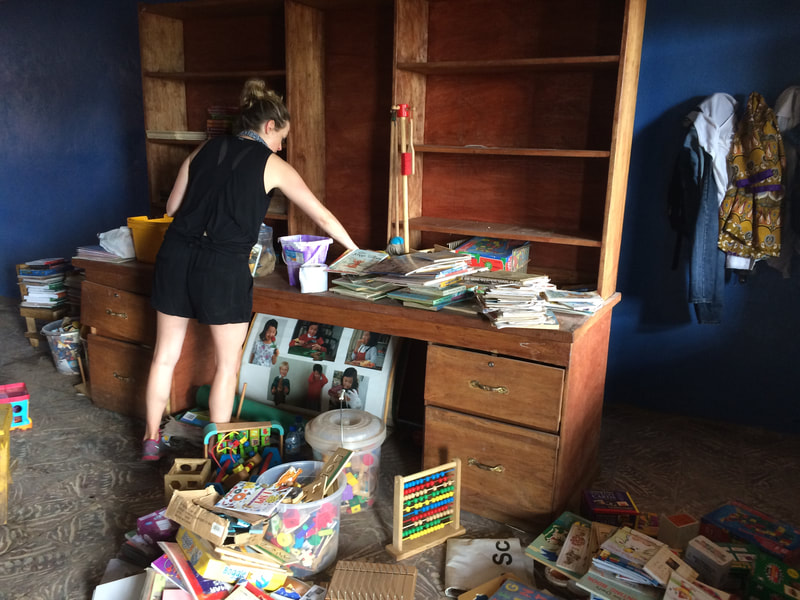
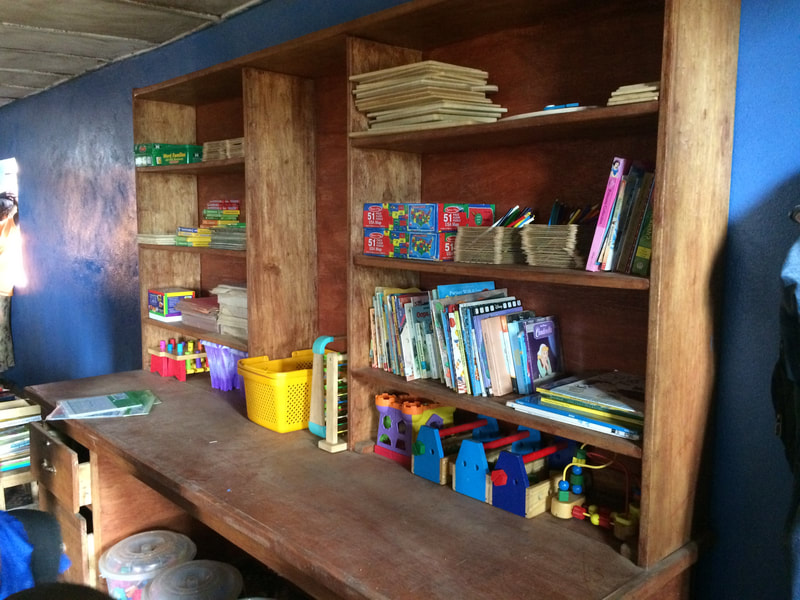
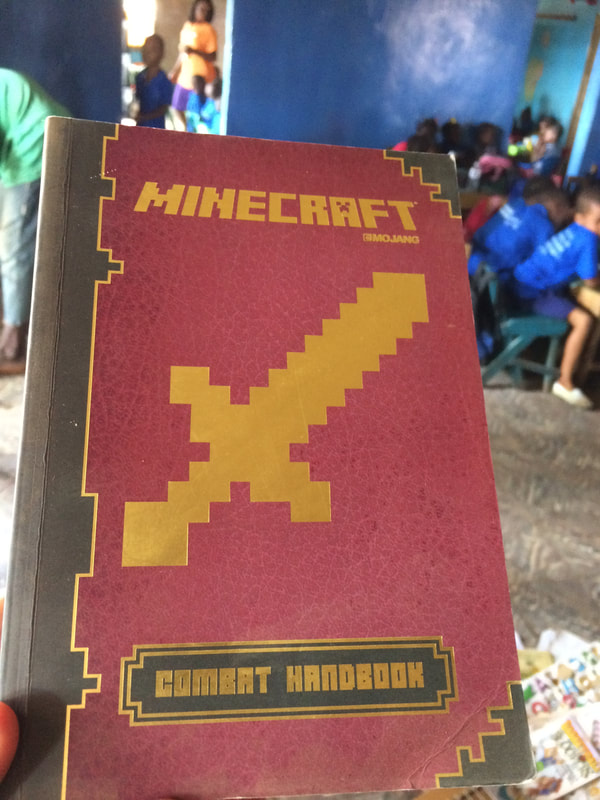
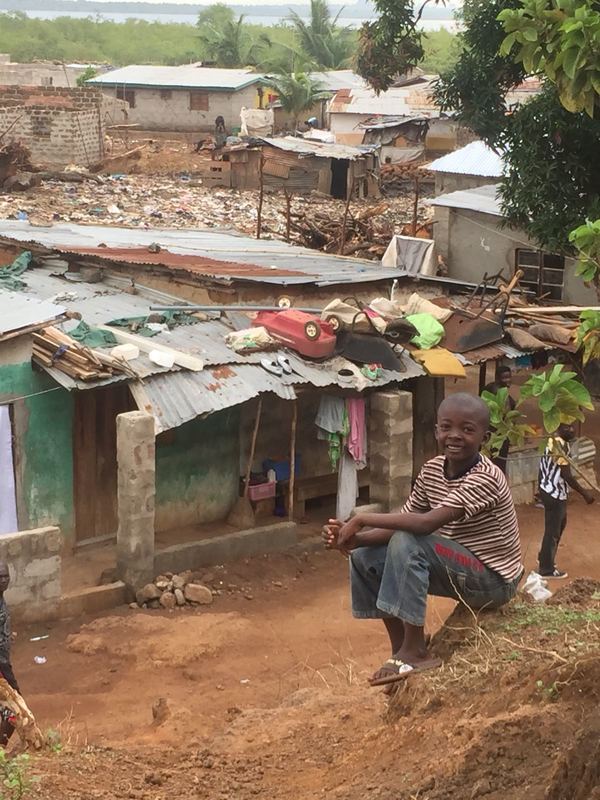
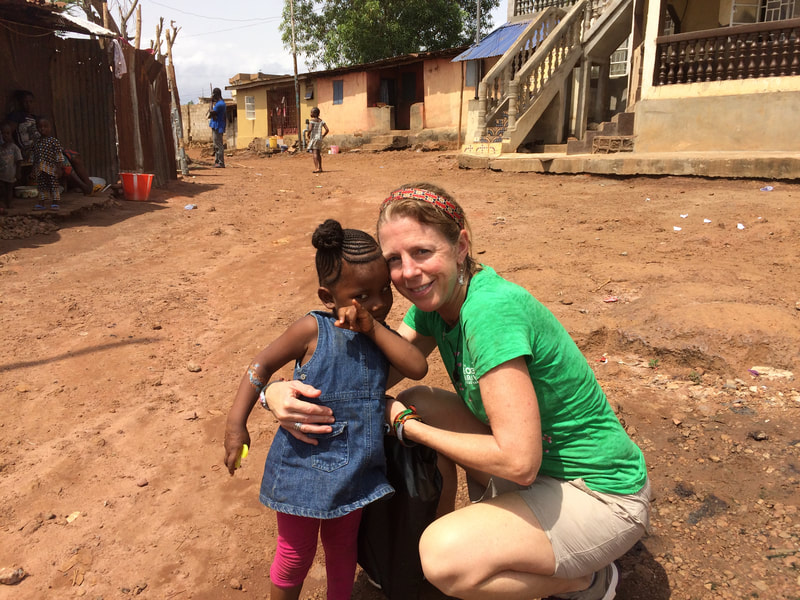
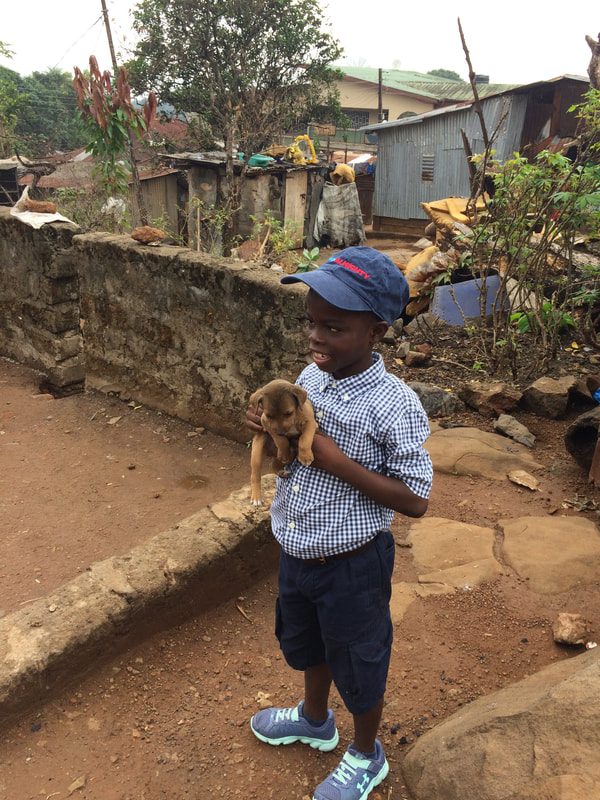

 RSS Feed
RSS Feed
